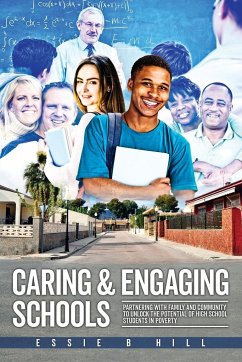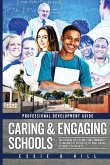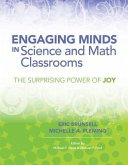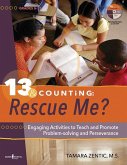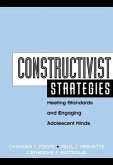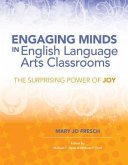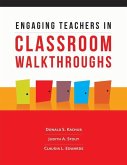Caring & Engaging Schools: Partnering with Family and Community to Unlock the Potential of High School Students in Poverty reviews the consequences of our failure to effectively address the needs of low-income students, given the poverty-related struggles that impede academic learning, personal growth, and ultimately positive life outcomes. The author integrates her experiences as an English teacher at "Northwood High School" (a pseudonym) with educational research, to portray the major stumbling blocks of schooling from the perspective of disadvantaged high school youth. As a result of their struggles, youth suffer three major losses and deficits: loss of hope for the future, disengagement from schooling, and impaired socioemotional well-being. Their struggles are also described in the context of impaired or neglected relationships among the major stakeholders of public high school education: school, family, and community. Various aspects of the traditional high school are reviewed to show the limited improvements of the last several decades for our low-income students; these are followed by glimpses of educational processes that enable learning to become truly student-centered for our youth. A strengths-based, whole-child education model called "Caring & Engaging Schools" is presented as the solution; the model comprises a palette of solutions already working in high-poverty schools and communities around the nation. One theme unites these strategies: a "marriage of true minds," the metaphor describing the school and the family relationship, supported by community members. Strengthening school/family/community partnerships reengages economically disadvantaged high school students in academic learning and, more broadly, in their transitions into adult roles. The framework consists of components and contexts that will enable low-income high school students to reengage in learning. The components include 1) the cultivation of three positive mindsets that can be integrated in the regular high school curriculum: hope, growth, and sense of purpose; and 2) the development of students' talents via learning pathways and embedded learning; these include Individual Learning Plans, the multiple intelligences perspective as applied to cognitive growth and career-oriented strengths assessment, and school/workplace connections through vocational learning and community-based mentoring opportunities. The contexts involve those of 1) student well-being (more traditionally known as mental health), treated holistically, with a strengths-based perspective linking school-based mental healthcare screenings and interventions to broader initiatives in both social and emotional learning and mindfulness training; and 2) socioeconomic integration, the at-long-last desegregation of our public schools. Socioeconomic integration is presented as a solution to address the needs of disadvantaged high schoolers while promoting change that will powerfully benefit the intellectual and social development of all students. The "Caring & Engaging Schools" framework enables us to consider a multitude of resources, programs, and funding methods that can disrupt the adverse effects of poverty on youth's educational and life outcomes. These strategies help establish supportive learning structures and social environments that particularly help youth in poverty thrive. The strengths-based, whole-child approach to public education will help our young people soar in their academic and nonacademic lives. Thus, the model provides strategies to help us achieve educational equity for all children once we value the true potential of public education and enlist all stakeholders in the systemic reform we so desperately need.

